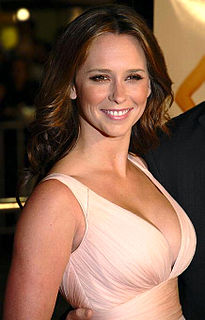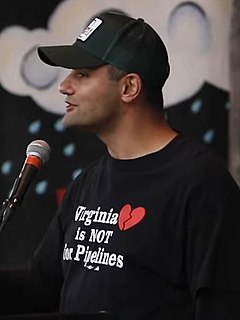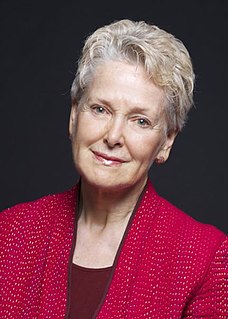A Quote by Sharan Burrow
You can't deny that if you have, you know, people who think it's okay to talk about women, to disregard the rights of workers, we're in trouble as an inclusive world.
Related Quotes
Sex workers are the last women police stand in to protect. Sex workers are the last people that room is made for in many ways. You get a different kind of feminism if you put people at the margins at the center. It's a recently resonant lesson, but black feminists have been saying this for decades. Now when I talk to people engaged in sex workers' rights advocacy and people who identify as intersectional feminists, this is the air they breathe. We can't just make feminism about improving the lives of all women. Because there is no such thing as all women and universal female experience.
The one thing that everyone knows about America is people will say, I know my rights. One of those rights is the right to organize. When workers do get together and organize and drive up their wages, they are much, much better off. I think this is one integral part of food policy. We can't talk about increasing the price of food without figuring out how working Americans are going to pay for that.
Iran is a country that talks about, denies the Holocaust, promises to wipe out Israel, is engaged in terror throughout the world. This is a regime that is giving vent to the worst impulses that you see right now in the Middle East. They deny the rights of women, deny democracy, brutalize their own people, don't give freedom of religion.
At the end of the day, these are issues that need to be discussed: femicides, among other things - immigrant rights, women's' rights, indigenous people's rights, animal rights, Mother Earth's rights. If we don't talk about these topics, then we have no place in democracy. It won't exist. Democracy isn't just voting; it's relegating your rights.
When we think about Islamic feminism, it is not just about women's rights. It's about a more progressive and tolerant expression of Islam in the world for all people. Women's rights is one aspect of it, it's not the end-all, but I also think that the women's issue is the strongest entry point that we've got to challenging extremism. You raise a woman's issue and you get the backs of the conservatives up against the wall faster than just about any other issue in our community. It's the fastest path that we've got to making change happen.
When we talk about defending Muslims, defending women, we're automatically by default excluding someone, but when we talk about defending liberty, when we talk about defending the freedoms that are enshrined within our founding documents, that is inclusive of every American. That's a message the American left needs to learn as we move forward.
In opposing we always talk about freedom in the Western world, Muslims always talk about justice. Very often we mean the same thing. But what we do mean, what in the Western world we call human rights, in the Islamic world, they don't talk about rights. Now they do, but in the past they didn't. It wasn't part of their terminology. But really it's the same thing.
It turns out that a lot of women just have a problem with women in power. You know, this whole sisterhood, this whole let's go march for women's rights and, you know, just constantly talking about what women look like or what they wear, or making fun of their choices or presuming that they're not as powerful as the men around. This presumptive negativity about women in power I think is very unfortunate, because let's just try to access that and have a conversation about it, rather than a confrontation about it.





































